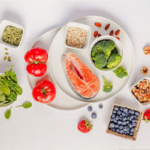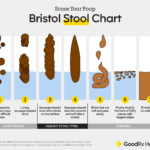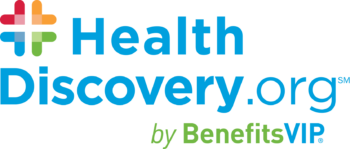Maintaining a balanced diet at work can be challenging, but it’s crucial for staying energized and productive throughout the day. Better nutrition plays a key role in bettering your tasks, managing stress, and maintaining overall well-being.
For those with food allergies, dietary needs or religious restrictions, meal planning is essential. Here are some inclusive tips to help everyone incorporate healthy eating habits into their workday.
Start with a Balanced Breakfast
Breakfast is often called the most important meal of the day for a reason. A nutritious breakfast can kickstart your metabolism and provide the energy you need to tackle your morning tasks. Opt for a meal that includes a balance of protein, healthy fats and complex carbohydrates. For example, if you’re lactose intolerant, try dairy-free Greek yogurt with fresh fruit and a sprinkle of nuts, or if you have a gluten allergy, choose gluten-free whole grain toast with avocado and a poached egg.*
Pack Your Meals
Planning your meals ahead of time can help you avoid the temptation of unhealthy snacks and fast food. Preparing a healthy lunch and snacks the night before ensures you have nutritious options readily available. Include a variety of foods such as lean proteins, whole grains, and plenty of fruits and vegetables. For those with dietary restrictions, like a peanut allergy, a quinoa salad with mixed veggies and grilled chicken, or a whole grain wrap with hummus, spinach and turkey (made without nuts or nut oils), are great options.*
Stay Hydrated
Dehydration can lead to fatigue and decreased concentration. Make it a habit to drink water throughout the day. Keep a reusable water bottle at your desk and set reminders to take regular sips. If plain water isn’t appealing, try infusing it with slices of cucumber, lemon or berries for added flavor.
Snack Smart
Snacking can be part of a healthy diet if done right. Instead of reaching for chips or candy, choose nutrient-dense snacks that will keep your energy levels stable. Some good options include a handful of nuts, fresh fruit, carrot sticks with hummus, or a small serving of low-fat cheese. For those with nut allergies, consider seeds like sunflower or pumpkin seeds as an alternative.*
Mindful Eating
It’s easy to eat mindlessly while working, especially if you’re multitasking. However, taking the time to eat mindfully can improve your digestion and help you recognize when you’re truly hungry or full. Try to step away from your desk during meals and snacks. Focus on your food, savor each bite and listen to your body’s hunger cues.
Limit Caffeine and Sugar
While a cup of coffee can boost your alertness, relying too much on caffeine can lead to energy crashes and increased stress levels. Similarly, sugary snacks and drinks provide a quick energy spike followed by a rapid decline. Instead, limit your intake of these and choose options that offer sustained energy. Herbal teas, water, and snacks with natural sweetness, like fruit, are better choices.
Better Nutrition for a Better You
Incorporating healthy eating habits into your workday can have a significant impact on your productivity, energy levels, and overall health. By starting with a balanced breakfast, planning and packing nutritious meals, staying hydrated, choosing smart snacks, eating mindfully, and limiting caffeine and sugar, you can set yourself up for a successful and vibrant workday. Small changes can lead to big results, so start making healthier choices today and notice the difference in how you feel and perform at work. For those with food allergies or dietary restrictions, ensure inclusivity in your meal planning to make healthy eating accessible and enjoyable.
*Always discuss dietary changes first with your healthcare professionals.














